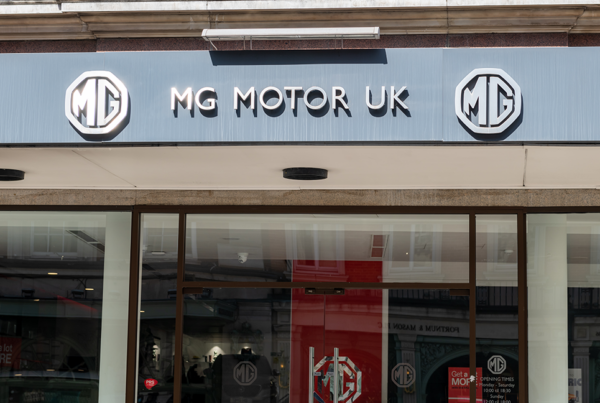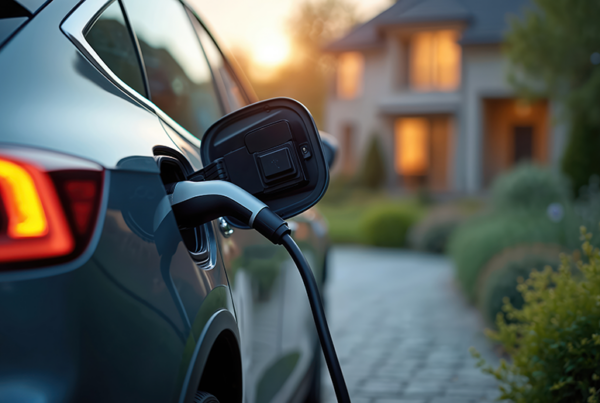Electric vehicles (EVs) have been steadily growing in popularity in recent years – a trend that’s largely been driven by the climate crisis and global emissions targets. Autumn 2020 delivered some milestone moments for low-emission vehicles: they claimed a record market share in September, followed by the government’s ‘Green Industrial Revolution’ announcement in November, boosting driver interest.
In our latest blog, we look at what these developments mean for used car dealers. Should EVs be top of the list when buying stock, or will it be a more gradual transition?
2020: A landmark year for EVs?
Autumn 2020 was electric vehicles’ time to shine – they surged forward in spite of the UK new-car market suffering its worst September since 1999. The numbers for September speak for themselves:
- Electric and hybrid cars topped 10% of the market for the first time.
- There were more than 373,600 plug-in models on UK roads at the end of the month.
- 66,611 pure-electric cars were sold in the UK from January-September 2020 – a 165% increase on the same period in 2019.
Not only that – in a sign of more ambitious action on climate change, the UK government announced in mid-November that it has brought forward the transition to zero-emission vehicles. This means ending the sale of new petrol and diesel cars and vans by 2030 (2035 for plug-in hybrid vehicles). Dubbed the ‘Green Industrial Revolution’, Boris Johnson also promised funds to accelerate the move to an electric future, including making EVs cheaper for drivers.
An instant hit?
So, do we expect bringing forward the ban on petrol and diesel vehicles to have an immediate impact? It certainly seems to have boosted interest from drivers if Auto Trader’s latest data is anything to go by:
- New EV advert views increased by 124% following the government’s announcement.
- 24 hours after the announcement saw a 422% increase in impressions and a 636% increase in clicks on pay-per-click advertising for electric and hybrid cars.
- New EV leads sent to retailers increased by 421% YoY in November.
These statistics may focus on new EVs, but the impact of more people investing in electric cars can only be a positive for the used car market!
Before we get too carried away, EVs still face a number of challenges before they become ‘the norm’. Auto Trader’s Market Insight analytics tool suggested that ICE vehicles remains the preferred choice for 80% of car buyers.
2021: The opportunity for your dealership
What do the recent steps forward for electric vehicles mean for you? In short, although it may be some time before we see major changes on forecourts, there are clear opportunities in the short term. The number of new EV models available is snowballing and the increase in consumer appetite is clear to see, which will inevitably filter down to the used car market.
There’s still a great deal of uncertainty in the industry due to coronavirus, but there’s optimism for the used car market. Looking back to Q3 2020, two-thirds of dealers expected used car transactions to increase in 2021 – and electric and hybrid vehicles should certainly be on the agenda. But not only that…
4 key areas to focus on in 2021
Mainstream adoption of electric vehicles will require new thinking when it comes to sales and aftersales. If you want to stay ahead of the electrification game, here are four areas to consider.
-
Staff training
Investing in EV training is a big commitment but remember that the expertise of your sales advisers may be a driver’s first introduction to electric driving. What’s more – mishandling a battery or EV system has serious safety implications. Check out programmes such as the IMI Levels 1 to 5 Awards to equip your technicians to work on EVs and hybrids.
-
Aftersales development
There are plenty of EV aftersales services opportunities. While pure-electric vehicles have fewer serviceable items than petrol/diesel models, checks on things like tyres, brakes and the chassis are still necessary – not to mention the additional work needed around the charging, gearbox and cooling systems. Moreover, some buyers might be nervous about making the switch, so you can set your dealership apart by offering them a tailored aftersales service that supports them as they get to grips with their new vehicle.
-
Dealer infrastructure
It might seem obvious, but charging facilities are needed in order to sell new and used EVs and plug-in hybrids in a meaningful way. It’s not just about being able to charge your for-sale vehicles – the Cox Automotive Insight Report 2020 highlighted that charging is a key concern among drivers, so by having charging points readily available at your dealership, you have the opportunity to help drivers learn about charging as part of the sales process.
-
Identifying opportunities
Another key aspect to consider is remarketing opportunities. For example, one particular area of interest is business EVs – did you know that half of the vans in Great Britain typically stayed within 15 miles of their base in 2019? With those operating fleets being only two or three change cycles away from the new petrol/diesel cut-off date of 2030, they might consider upgrading their fleet to electric sooner rather than later – it’s up to dealers to be ready to help them make the switch!
We’re still a few years from the mainstream adoption of full-electric models, but the dealers who stay ahead of the curve will be in the best position to take advantage of the new opportunities presented by the electric revolution.



